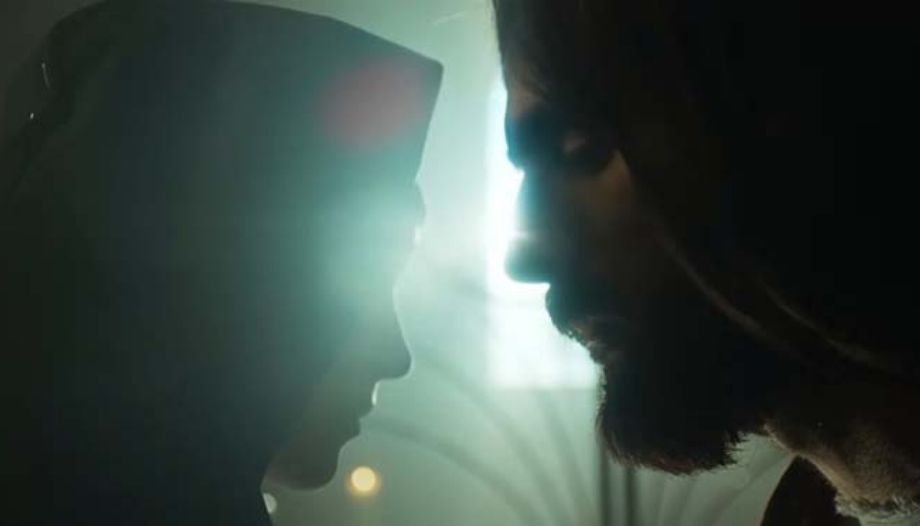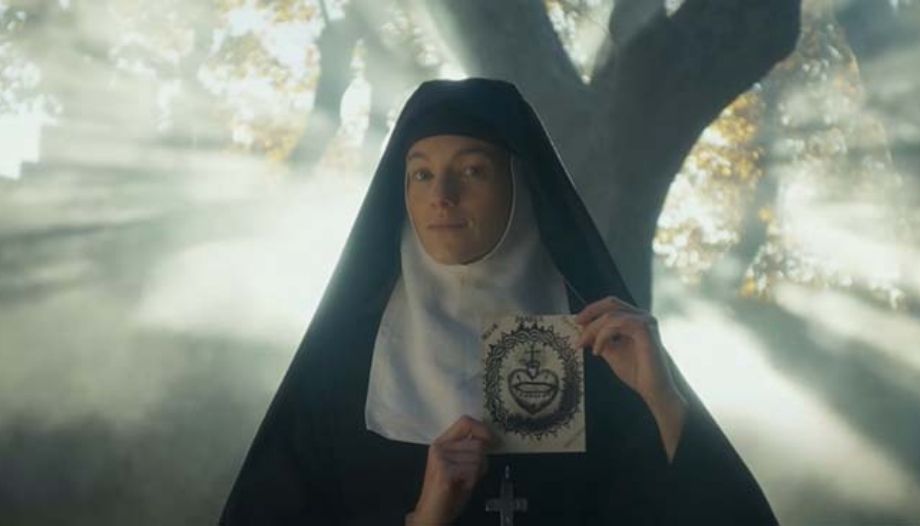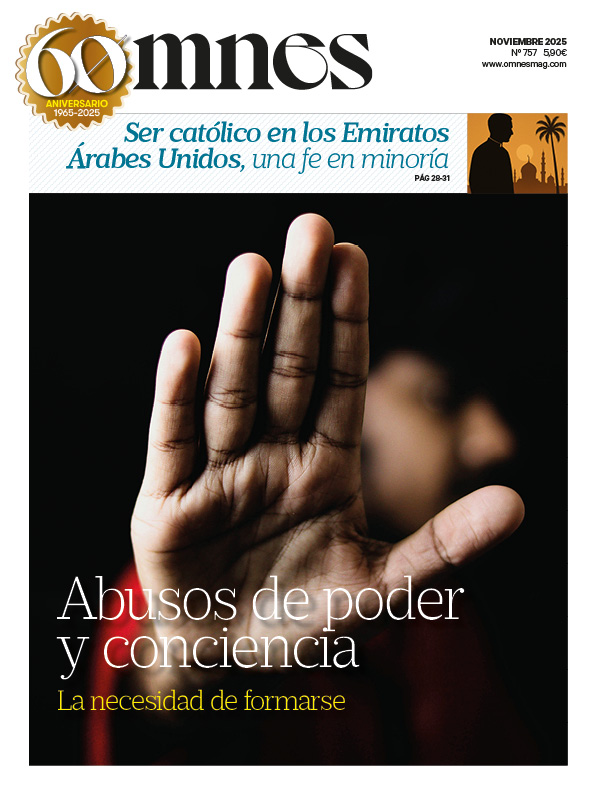– Caroline de Sury, Paris, OSV News
The new film about the Sacred Heart of Jesus, Sacré Coeur, is breaking box office records in France. It is also breaking records for public rejection in campaigns and in important city councils in secular France, such as Marseille.
‘Sacré Coeur‘It has completely exceeded initial expectations (with lines at movie theaters not seen in years), while also sparking significant controversy in France. This includes the cancellation of the film's promotional campaign on public transportation and its screening in France's second-largest city, given the country's secular nature.
However, for many, the film's popularity demonstrates that French Catholicism has returned to the public arena.
Saint Margaret Mary Alacoque
Released on October 1, the film, subtitled “His reign will have no end,” focuses on the apparitions of Jesus to a French Visitation nun, Saint Margaret Mary Alacoque, to whom he showed his heart between 1673 and 1675 in Paray-Le-Monial, in the French region of Burgundy.
Produced to commemorate the 350th anniversary of the apparitions, this docudrama combines historical reenactments, testimonials, and expert analysis. It gives ample space to accounts of personal encounters with Christ, often during adoration of the Blessed Sacrament.
The witnesses and speakers are very diverse. They range from Father Matthieu Raffray, a traditionalist priest known for his strong opinions on social media, to prisoners, members of parliament, and a former drug dealer from Bondy, a city in the northern suburbs of Paris known for its high crime rate.

Inspired by a visit to the sanctuary in Burgundy
The film's directors, Steven and Sabrina Gunnell, were inspired to produce it after a visit to the sanctuary in Burgundy. Steven is a former member of the French youth band Alliage from the 1990s. He converted to Catholicism and now works with his wife on producing films related to their deep Christian faith.
The film places great importance on the shrine of Paray-le-Monial. Entrusted to the Emmanuel Community since 1985, the shrine welcomes tens of thousands of pilgrims each year. It was the setting for a successful jubilee celebration for the 350th anniversary of the apparitions, held between December 2023 and June 2025.
The jubilee was closely linked to the late Pope Francis's last encyclical, “Dilexit Nos,” subtitled “On the Human and Divine Love of the Heart of Jesus Christ,” published in October 2024.
The film's success was accompanied by criticism, both inside and outside the Catholic Church.
The film does not mention the Jesuits.
A common criticism of “Sacred Heart” from within the Church is the omission of the Jesuits. The film features St. Alacoque's spiritual director, Father Claude La Colombière—canonized by Pope St. John Paul II in 1992—but never mentions that he was a Jesuit. Several French Jesuits told OSV News that they regretted this, highlighting the key role of the Society of Jesus in spreading devotion to the Sacred Heart.
Today, the Pope's Worldwide Prayer Network, rooted in Jesuit spirituality, encompasses more than 22 million Catholics in 92 countries. The Jesuits interviewed stated that recognizing society, along with other congregations linked to this devotion, would have demonstrated that devotion to the Sacred Heart is a vital movement within the universal Church, not just a local phenomenon.
Outside the Catholic sphere, the controversy reached the level of “Christianophobia,” in the words of the director himself, when public institutions such as city councils were reluctant to screen the film, as was the case in Marseille.
‘Violation of the nation's secularism
The October 22 screening at the Château de La Buzine, a municipal cinema, was canceled, citing a “violation of the principle of secularism” in a public space.
Le Monde reported that the screening had been canceled minutes before the premiere on the grounds that “a public establishment cannot host screenings of a religious nature.”.
As the film was about to be released on October 1 throughout France, MediaTransports, the advertising agency for SNCF and RATP, rejected its planned poster campaign in metro and train stations, citing the “religious and proselytizing nature” of the project, “incompatible with the principle of public service neutrality,” Le Figaro reported.
Heated debate about cinema
Joining a heated debate about Sacré Coeur, on October 29, Le Monde highlighted the film's “political” dimension. It also expressed surprise at its “low-budget” nature, which “should never have gone beyond the niche audience for which it was intended.”.
But for Father Pascal Ide, a priest of the Archdiocese of Paris known as an online film critic, “’Sacré Cœur’ dusts off, decompartmentalizes, and depoliticizes a central truth of Christianity, which is that God became Heart.”.
A doctor of medicine, philosophy, and theology, Father Ide expressed his enthusiasm for the film in La Croix October 29. “What moved me most was undoubtedly the person of Jesus and his intense desire to approach each person personally in the most intimate way, to experience an intense heart-to-heart connection,” said Father Ide.
“Discreet but real return of religion”
In a conversation with OSV News, he added: “The film is very enriching. There is something for everyone. What is certain is that it has a considerable impact, which says a lot about the expectations of an audience that goes beyond practicing Catholics.”.
On November 3, Le Figaro devoted an entire page to the docudrama phenomenon, saying that “This film reveals the return discreet but real influence of religion in French society.”.
The film's popularity is so great, Le Figaro said, that “week after week, the lines are getting longer in front of movie theaters, which have been struggling since the beginning of the year.”.
Unprecedented popularity‘
La Croix praised the “unprecedented” popularity “for a documentary of this nature,” saying that “the audience, which is growing thanks to word of mouth, is more diverse than the controversy surrounding the film's release would suggest.”.
For the Catholic magazine La Vie, ‘the key to success lies in the film itself,’ which the magazine describes as “a popular catechism” with its own missionary dimension. Based on this observation, many bishops continue to promote it on their diocesan websites.
Le Figaro quoted one of the viewers, Jean-Michel, who said: “This film goes beyond the scope of a simple documentary: it is a true inner journey, an encounter with the living love of the heart of Jesus.”.
As the United States commemorates the 250th anniversary of its founding next year, U.S. bishops will consecrate the nation to the Sacred Heart of Jesus. The decision was made during the fall plenary assembly of the United States Conference of Catholic Bishops, held November 11 in Baltimore.
———————-
Caroline de Sury writes for OSV News from Paris.
This information was originally published in OSV News. You can consult it here.
———————–








